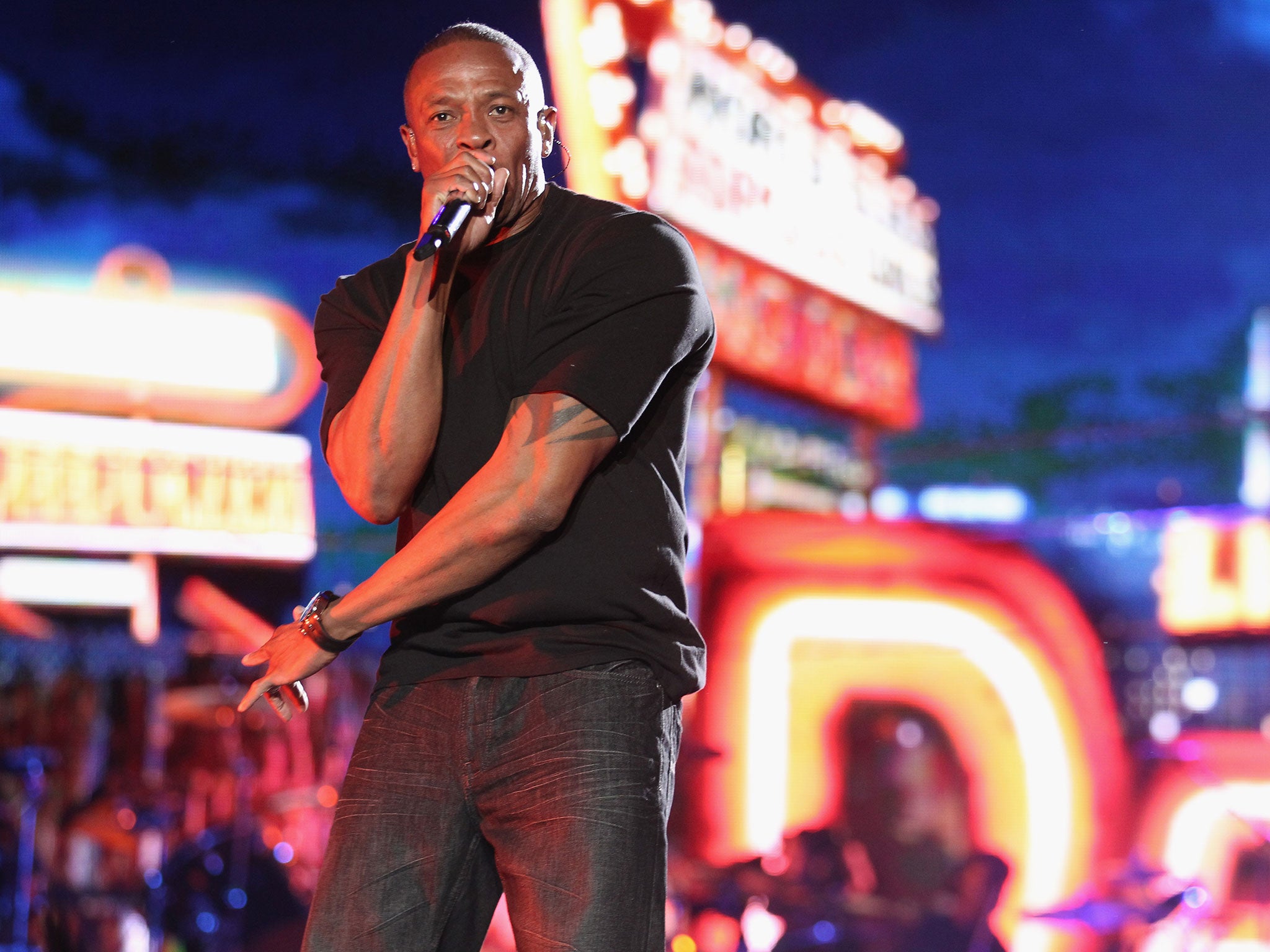Dr Dre may be donating his royalties to charity, but let's not forget his record in violence against women
As a victim of domestic violence myself, I find it difficult to believe how easy it is for society to forget these sorts of crimes and then celebrate the men who carried them out

Your support helps us to tell the story
From reproductive rights to climate change to Big Tech, The Independent is on the ground when the story is developing. Whether it's investigating the financials of Elon Musk's pro-Trump PAC or producing our latest documentary, 'The A Word', which shines a light on the American women fighting for reproductive rights, we know how important it is to parse out the facts from the messaging.
At such a critical moment in US history, we need reporters on the ground. Your donation allows us to keep sending journalists to speak to both sides of the story.
The Independent is trusted by Americans across the entire political spectrum. And unlike many other quality news outlets, we choose not to lock Americans out of our reporting and analysis with paywalls. We believe quality journalism should be available to everyone, paid for by those who can afford it.
Your support makes all the difference.I’ve never been a fan of Chris Brown. I was vaguely aware of his early work (in the way I’m vaguely aware of anything that plays loudly in clubs I’m hoping to leave as soon as possible) but that was it. So the first time I really paid attention to him was when he brutally beat Rihanna in February 2009. I saw those photos and I felt crippled with the horror of it, a feeling exacerbated by the fact that I was, at that very moment, in a relationship with a violent man. So it was easy for me to channel my hatred into Chris Brown, a performer for whom I’d never really had much time anyway.
Dr Dre is harder for me. I grew up listening to N.W.A, the group he formed in 1986, because my much older brother was into hip hop and I was into whatever my brothers were into. By the time I was a teenager, his proteges Eminem and 50 Cent were huge names, both part of the musical fabric of my formative years. He’s been an influence on and collaborator with artists who I passionately love, most recently Kendrick Lamar.
And for an embarrassingly long time, I was unaware of the fact that in 1992 he was convicted of beating Dee Barnes, a fellow rapper and TV personality. I was unaware of the fact that he considered this “no big thing” as, in his words, he “just threw her through a door”. I was also unaware of the fact that his former partner, the singer Michel’le, claims he broke her nose several times during the course of their relationship. She has said she needed time to learn that the abuse did not equal love. I could relate.
I was unaware of all this because I was incredibly young when it took place and, due to the absence of Twitter and TMZ, it was a lot easier for these sorts of incidents to pass the public by. So by the time I found out - embarrassingly recently - that Dr Dre was a serial abuser of women, I was already a fan. It was hard to know how to feel. Should I be excited about Compton, the album he released this week? Should I plan to see Straight Outta Compton, the movie about N.W.A’s rise, which is currently in previews? Could I continue to enjoy him, to support his career financially or emotionally, knowing that he made women into victims? As a victim of domestic violence myself, how hypocritical would that make me?
The performative element to hip hop makes it easy not to take lyrics literally. I’ve made excuses for songs with a good beat because there’s a bravado inherent in the form, a bravado that’s often drenched in violence. But once you’re aware of Dre’s personal history, how do you enjoy the track Medicine Man on his new album, on which Eminem raps about raping women? How do you unite your appreciation of N.W.A’s work - work which burst with passion and outrage at racial inequality in America - with songs like One Less Bitch, on which the group rapped about raping and killing women? How do you watch the movie Straight Outta Compton when the director has admitted he excluded the Dee Barnes assault and other misogynistic incidents involving N.W.A because they were just “side stories”? Does the fact that he's donating his royalties to an arts centre in Compton really cancel all this out? Does he deserve the veneration he's getting for this one act of philanthropy, considering all those "side stories" of misery, abuse and violence which came before it?
Living in ignorance of your favourite artist's personal life is tempting. And believe me, a significant part of me wishes I didn’t know about Dre’s history of violence against women and could return to my state of unencumbered fandom. But these “side stories” deserve to be told because when we push them from view, we contribute to the silence in which victims of domestic abuse suffer. These women deserve a dialogue - one that isn't relegated to the corner, but is allowed centre-stage.
Join our commenting forum
Join thought-provoking conversations, follow other Independent readers and see their replies
Comments